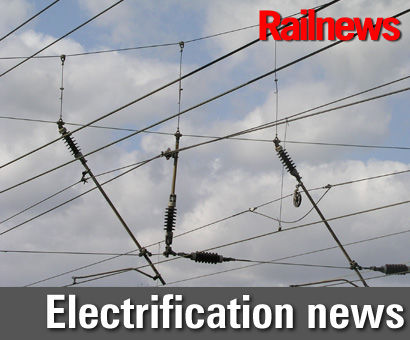A COMMITTEE of MPs has recommended that electrification schemes cancelled over the past year should be revived and placed in the ‘pending’ tray for the time being.
The call for a rethink has come as the Commons Transport Committee published a report today on infrastructure, entitled Rail infrastructure investment, in which it said the government must do more to help the regions which had been ‘short-changed’ on rail spending.
Electrification schemes which were set out in 2012 but later cancelled include Kettering-Nottingham/Sheffield, Cardiff-Swansea, Didcot-Oxford, Chippenham-Bath-Bristol Temple Meads and Oxenholme-Windermere. East West Rail had also been selected as part of the ambitious scheme to create an ‘electric spine’ for freight stretching from Southampton to the Midlands and North, but it is now being built as a diesel route for commuter trains.
These schemes should now be placed in the Rail Network Enhancements Pipeline, says the report, for further development and design work ‘with a particular focus on reducing the costs’.
The Committee believes action is needed to ‘rebuild confidence’ in the Department for Transport and Network Rail in the next Control Period, which will run from 2019 to 2024, because there are still ‘real funding gaps between London and regions in need of economic regeneration, which will worsen if not addressed more directly’.
The MPs found that current methods of appraisal will always favour London as they are weighted heavily towards the reduction of congestion and journey time savings. However, such an approach places ‘less economically buoyant regions’ at a disadvantage.
Lilian Greenwood, who chairs the Committee, said: “The Secretary of State’s cancellation of three electrification schemes in the Midlands, south Wales and Lake District only to be followed four days later by the announcement in principle to fund Crossrail 2 in London unsurprisingly re-ignited the debate about disparities in rail infrastructure investment.
“The Treasury’s own data shows that spending per head in London in 2016/17 was more than ten times that of the East Midlands. Regional economies will never be able to catch up with London while such inequalities exist.
“Some regions have faced decades of under-investment in their parts of the rail network. They deserve to have a clear sense of what the Government is doing to help them attract transport investment and grow economically. The Northern Powerhouse and Midlands Engine will struggle to live up to their names without tangible change.”


